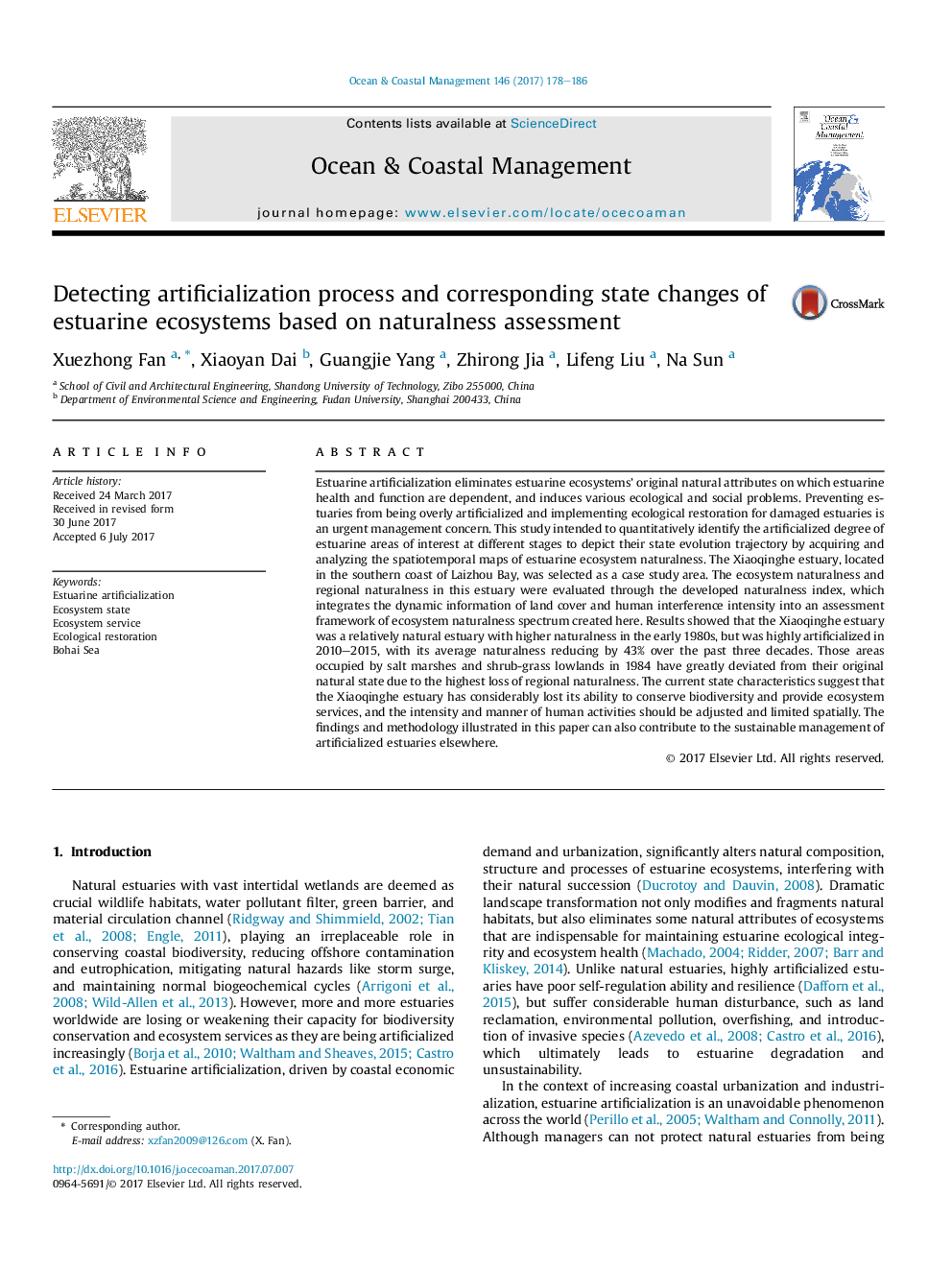| Article ID | Journal | Published Year | Pages | File Type |
|---|---|---|---|---|
| 5473883 | Ocean & Coastal Management | 2017 | 9 Pages |
Abstract
Estuarine artificialization eliminates estuarine ecosystems' original natural attributes on which estuarine health and function are dependent, and induces various ecological and social problems. Preventing estuaries from being overly artificialized and implementing ecological restoration for damaged estuaries is an urgent management concern. This study intended to quantitatively identify the artificialized degree of estuarine areas of interest at different stages to depict their state evolution trajectory by acquiring and analyzing the spatiotemporal maps of estuarine ecosystem naturalness. The Xiaoqinghe estuary, located in the southern coast of Laizhou Bay, was selected as a case study area. The ecosystem naturalness and regional naturalness in this estuary were evaluated through the developed naturalness index, which integrates the dynamic information of land cover and human interference intensity into an assessment framework of ecosystem naturalness spectrum created here. Results showed that the Xiaoqinghe estuary was a relatively natural estuary with higher naturalness in the early 1980s, but was highly artificialized in 2010-2015, with its average naturalness reducing by 43% over the past three decades. Those areas occupied by salt marshes and shrub-grass lowlands in 1984 have greatly deviated from their original natural state due to the highest loss of regional naturalness. The current state characteristics suggest that the Xiaoqinghe estuary has considerably lost its ability to conserve biodiversity and provide ecosystem services, and the intensity and manner of human activities should be adjusted and limited spatially. The findings and methodology illustrated in this paper can also contribute to the sustainable management of artificialized estuaries elsewhere.
Related Topics
Physical Sciences and Engineering
Earth and Planetary Sciences
Oceanography
Authors
Xuezhong Fan, Xiaoyan Dai, Guangjie Yang, Zhirong Jia, Lifeng Liu, Na Sun,
